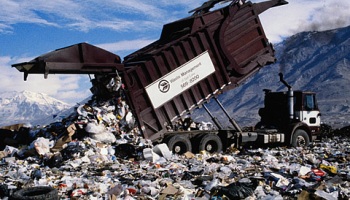WEEE Systems Aims To Help Firms Manage e-Waste

A new company called WEEE Systems launched today, to help organisations manage their electronic waste
Electronic waste management firm ‘WEEE Systems’ has today joined the green IT industry, with the aim of helping organisations handle their e-waste more effectively.
The company claims there is a growing volume of waste electrical and electronic equipment (WEEE) in the UK, amid public concern about disposal practices.
Speaking about a recent report on Britain’s role in fuelling the illegal e-waste trade, WEEE Systems founder Bob Clarke urged big organisations to act responsibly when handling their nonfunctional equipment.
He said the report, as evidenced in the recent BBC Panorama programme, is a wake-up call for entrepreneurs to do the right thing by “tightening e-waste practices, demonstrating consistent corporate social responsibility and meeting and exceeding the tougher compliance targets inherent in WEEE Directive legislation.”
Reduce, reuse, re-purpose and recreate
 WEEE Systems aims to provide large organisations with “a secure and safe route” to recycling electrical and electronic infrastructure as well as equipment. Through its four-stage process, clients can have “a materials transformation ecosystem” built to their specific requirements.
WEEE Systems aims to provide large organisations with “a secure and safe route” to recycling electrical and electronic infrastructure as well as equipment. Through its four-stage process, clients can have “a materials transformation ecosystem” built to their specific requirements.
According to WEEE Systems, the process starts with ‘reduce’, where organisations will receive advice on how raw materials recreated from e-waste management can help reduce the volume of new raw materials used in the manufacturing process.
The second stage is ‘reuse’, where the company will repair and refurbish waste equipment before returning them to the primary or a secondary user, while disassembling whatever is beyond repair for tertiary applications.
Following ‘reuse’ is ‘re-purpose’. WEEE Systems will cooperate with partners to create new applications for its clients’ e-waste, maximising the materials’ assets and extending their life cycle.
The last stage is ‘recreate’, where the company will deploy the recovered WEEE in enabling the development of “entrepreneurial and sustainable” products.
According to WEEE Systems, the volume of waste requiring this transformation will increase, as equipment’s life cycle shortens while economic trends look set to generate “vast volumes of surplus equipment”.
ZubaBox mobile IT room
Meanwhile, The charity group Computer Aid International has published its fourth ‘special report‘ on ICT and the environment, laying out its solutions to the problem of e-waste. The report recommends that governemnts should, among other things, ban the import and export of e-waste, prioritise reuse over recycling for functional equipment and ompel e-waste recycling through legitimate operators.
“It is essential that those countries with existing laws and regulations for e-waste properly enforce them. This will most likely involve stronger penalties for e-waste criminals and more resources for enforcement authorities,” said Computer Aid’s environmental advocacy officer Haley Bowcock.
“Additionally, all governments need to develop systems for the safe and effective management of e-waste that are backed by legislation and based on producer responsibility. This will enable all countries to develop and maintain the capacity to manage e-waste safely over the long term. It will also help prevent e-waste from continuing to flow down a path of legislative least resistance, at great cost to communities and the environment.”